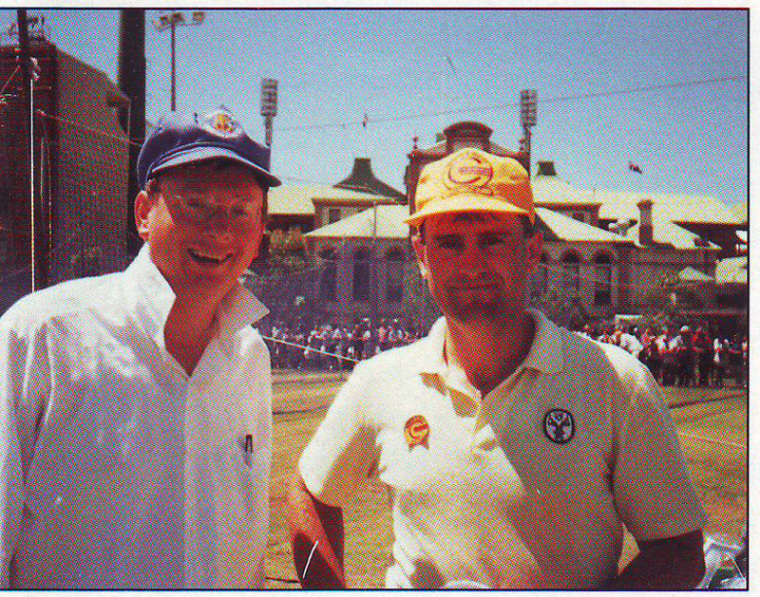
At this time every year – that is the second half of the year and Year 12 students are looking at future pathways. And we know that end of year exams are not the be-all and end-all of anything.
In such a large system (approximately 70,000 students each year in NSW end of school), there will inevitably be students who come to some sort of grief or feel disadvantaged on the day of the final exam. Each student is so concerned about maximising their ‘ranking number’ that they wish to have the highest mark (grade) that they can get for each individual subject.
So the authorities (the Board of Studies in NSW) has developed systems for students to be able to document these mishaps and gain some consideration. Students with medical disabilities of any kind are able to negotiate special circumstances, so they are not included in this process.
Extensive paperwork and verification by authoritative people needs to be supplied. One of my young relatives was able to get such consideration some years ago when her grandmother died during the exams, due to her disrupted study routine and the need for the family to travel interstate for the funeral.
Other common reasons students might ask for consideration are illness or other sudden misadventure.
If the documentation is deemed adequate to prove the student’s case, then the student is awarded whichever mark is the higher: the school assessment alone or the combined assessment and exam mark. This is all done AFTER the student has sat the exam, but before the results are known by the student.
However, as mentioned yesterday, ‘systems drive behaviour’, and as a result of this ‘consideration’ being available, more and more students each year are asking for such ‘consideration’ – in some schools as high as 90% of the student cohort; and in many schools 20-30%. In recent years about 6% of the students asked for consideration in one or more subjects.
However, it should be noted that in many cases the results are not changed because, in fact, the student has performed better in the exam than they thought they had.
Should a choice be offered
This is the question. Should students get a choice between an end of studies examination or an all year-round school-based assessment. I for one, found the final examination a more comforting experience because I was skilled at retention of facts and figures and not so good at writing long assignments or concentrating on a project over a long time-frame.
But for others, the final examination process is both traumatic and frightening whereas working through various assignments with dedicated research and a broader appreciation is by far a better process for assessment.
Of course, all this depends on both the style of questions, whether the exam questions accurately reflect the syllabus the student has learnt, and the type of exams that are possible (open book exams, short-answers, long essays, etc). These discussions are ongoing among educational researchers and the teams of experts (comprising both teachers and university personnel) who set the exams each year. This is not what this article is about.
What I wish to ask is this: if so many students are asking for ‘special consideration’, should all students be given a choice as to whether they want to use the school assessment, the final exam or an average of both?

Arguments ‘for’ and ‘against’ exams.
Many educators still maintain that an examination forces the student to compile in their thinking not only a set of facts, but under pressure, how to align those facts and put them into a framework for reflection. This can never be underestimated and has given many a student an insight as to what they might aim for into the future.
Moreover, these experts claim, a final exam is a leveller – everyone does the one test, so it is a measure that everyone can accept as ‘fair’.
The opponents of final examinations, or too many tests along the way, argue that ‘systems drive behaviour’, and that teachers always end up ‘teaching to the test’ and not teaching for understanding or the context of the child’s world, or for the long-term educational benefit of the child.
My research discovered a 2012 article in the Sydney Morning Herald, and reflects research previously done in England and the USA on frequent testing:
Those who argue for ongoing assessment claim that this is the only way a student’s true potential can be gauged – their continued performance over a longer period, and with a wide variety of testing opportunities (short tests, long essays, research projects, verbal presentations, etc etc). If they are ill on one day, or if they have had an argument with their parents, or some other misadventure then the test or assignment on that particular day will not be to their detriment, because if their other assessments are good, they will get a good average mark overall.
However, this may not fit well with a student whose temperament is not inclined to the slow progressing model of learning. In addition, there are students who glean more from discussions, mostly informal, but who may not have their ideas ‘gel’ until the end of the course.
Then there is the issue, discussed briefly in a recent paper commissioned by the Chief Scientist, that if teachers give students too many take-home assignments, they are not sure who actually does the work. And if the school assessment is based on project work to a large extent, then the authorities who do the ‘moderating’ cannot be sure whether the work is ‘all the student’s own’.
http://www.acer.edu.au/documents/Mono63_MathsSciTechSept08.pdf
The breadth of education is so wide today that I would like to see a time when both models will be accepted, and perhaps the students can choose BEFORE the exam which way they want to be assessed. This would ensure that they don’t abuse the system by trying to ‘have their cake and eat it too’, as there would not be an opportunity for them to change their mind – unless for some reason, perhaps, they missed the examination entirely due to a mishap.
Theological education
Under-graduate seminarians face examinations as do most Masters students, however post graduate doctoral dissertations are just that, a research document that illustrates the student has a comprehensive grasp of their subject.


Dr Mark Tronson - a 4 min video
Chairman – Well-Being Australia
Baptist Minister 45 years
- 1984 - Australian cricket team chaplain 17 years (Ret)
- 2001 - Life After Cricket (18 years Ret)
- 2009 - Olympic Ministry Medal – presented by Carl Lewis
- 2019 - The Gutenberg - (ARPA Christian Media premier award)
Gutenberg video - 2min 14sec
Married to Delma for 45 years with 4 children and 6 grand children